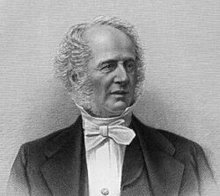Part 2 of my conversation with the Guru, David Williams:
David Williams graciously sat down with me for over an hour last week in Kirkland Hall to talk about Vanderbilt athletics and the direction of program. The Guru claims to have never read VSL…unfortunately for us, I don’t think he was being coy. When we first sat down, I asked him several questions to try and get the ball rolling. Not thinking he’d give me as much time as he did, I wanted to be sure to get these in.
The first question, not surprisingly, was how, if at all, the departure of EGG would affect athletics at the university, particularly the restructuring. The Guru was quick to say that, in the short-term, under interim Chancellor Nick Zeppos, nothing will change. Still, there does remain a level of uncertainty. If the next chancellor decides to go down a path other than that which EGG, spearheaded by David Williams, did, things will certainly change. In the meantime, the best way to stay on-course is to continue to make progress, and continue to succeed. The Guru did say that the presense of John Ingram on the committee will certainly ensure that the athletic perspective is taken into account.
The next question I asked was what he would consider a “successful” season for the football team. The Guru was quick to say that he considered the last two seasons successes, but that for this season, the goal was certainly bowl eligibility. Echoing Chris Williams’ sentiments, the Guru said Vanderbilt’s got a chance to win the SEC, but that that would require luck, good calls, and playing as well as we possibly can every Saturday. He was quick to point out that Vanderbilt is the smallest school, in the best division, of the best conference in the country and that winning is never ease; it was clear that he is as excited as the rest of us about the prospects for CBJ’s boys.
The next set of questions dealt with the future of Vanderbilt sports and what direction he saw it heading in. When I asked the Guru where he would like to see Vanderbilt athletics be in 5 years and 10 years, he gave some very definite answers. Over the next five years, he would like to see Vanderbilt Stadium upgraded and improved; he would like to see Vanderbilt continue to move up the ladder in the Director’s Cup standings (last year, the Commies competing in 16 sports finished 33rd); he would like to see all of Vanderbilt’s sports teams and scholarships fully-funded; and he would like to see Vanderbilt’s student-athletes continue to increase their GPA as compared to the general student population (more on this later). Going back to the funding issue, the Guru made it clear that while the National Commodore Club’s supports are very generous in their support for the school’s athletic department, in order for teams to be fully funded, an increase in the giving, particularly in the form of endowed athletic scholarships, will be necessary.
Vice Chancellor Williams told me that his office is currently in the process of formulating a 10-year plan for athletics at Vanderbilt. That report will be released, he hopes, in January. In the meantime, I pressed him on whether Vanderbilt would like to expand the sports it competes in. This is clearly something the Guru has thought about, and he, rather quickly, said he would like to see Vanderbilt compete in 21 sports in 10 years (we currently compete in 16). The sports he mentioned adding were: men’s track, which according to him, the football coaches want and think will help their program; women’s volleyball; women’s softball; and rowing, men’s and women’s should the SEC adopt them. The most important thing is being able to compete in those sports and to be able to foresee a day when those sports can be fully funded. Presently, men’s cross-country, women’s soccer, and women’s bowling are not fully funded.
Just as an aside, David Williams mentioned Stanford several times throughout our conversation as the type of program he would like to see Vanderbilt become. As he pointed out to me, “Being a great academic institution and a great athletic institution are not mutually exclusive…Is it harder? Hell yes!” And that’s the point, just because it’s hard does not mean it’s something that isn’t worth trying.
The restructuring is working; the teams on the field representing the university are better than teams in the past, under the conventional structure. But what about off the field? The thing the Guru kept hitting home was that Vanderbilt was treating athletes with the respect they deserved, as if they were more than “just” a football or basketball player, or whatever sport they competed in. Vanderbilt looks at student athletes as multi-dimensional. Before the restructuring, student athletes at Vanderbilt had a GPA around 2.85, now student athletes have a GPA of 3.009 (as compared to the general student population of 3.17). According to the Guru, getting their cumulative GPA over 3.0 was something that was very important to many of the student athletes, and a baggage of honor they can all wear; as he points, these students are getting a real Vanderbilt education. The Guru told me stories of players supporting their teammates, not only for their play on the field, but for their good grades in the classroom. If that’s not changing the culture of college athletics, I don’t know what is.
David Williams told several stories about Vanderbilt athletes, past, present, and future. Russell Lakey sat in the very room I sat and when asked by the Guru what he wanted to do, told the Vice Chancellor it was law school. Russell will graduate from Vanderbilt Law next spring. He told me a story about Alex Hillard, who besides being one of the best baseball players in the state of Louisiana, was also one of the best tuba players. For Alex’s official visit, he sat in a recruiting meeting with Coach Tim Corbin and the Dean of Blair Music School.
When coaches go on recruiting visits, they aren’t just recruiting themselves or their program, but Vanderbilt, and all the school has to offer. As the Guru told me, “Parents eat it up.”
I asked the Vice Chancellor about a quote in Athlon’s SEC Football Preview about Vanderbilt lowering academic standards to be more competitive. I asked the Guru if there was anything to this claim. He said that while Vanderbilt does take athletes that might be “academically at-risk” they never take players that they don’t think can make the grade. If you are going to take “at-risk” kids, you have to provide the resources necessary to make sure these student athletes graduate. A Smile came to the Guru’s face when he told me that 2 of the “at risk” cases they’ve accepted during his tenure have gone on to graduate school.
The third, and final part of my conversation with David Williams will appear tomorrow.
Subscribe to:
Post Comments (Atom)











3 comments:
Great read. One minor detail- the music school is the Blair School of Music and not Blair Music School as stated in the post.
It's great that David was so open with you and was so "quick to mention" everything. Does he talk like this?
http://www.youtube.com/watch?v=NeK5ZjtpO-M
Will,
Thanks for reading and the clarification.
Sisserson,
Re-reading the post, I too am glad at how quickly the Guru was to open up to Bobby.
What can I say, I bring it out in people.
Post a Comment